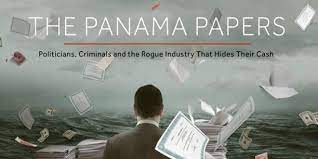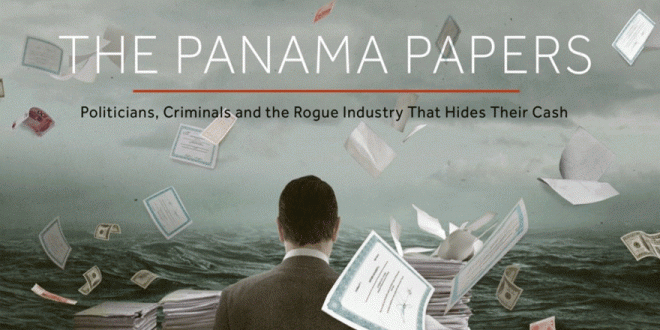ISLAMABAD: The government has proposed to open more than five-year-old cases to tax undisclosed offshore assets of Pakistanis and also seeks to impose taxes on “suspicious” gifts transactions among relatives that increased to Rs170 billion last year.
In the Finance Bill 2021, the government has suggested to amend two critical clauses that deal with serving tax notices to the people and treating the gifts related transactions.
It has been recommended to condone the maximum time limit of five years to serve tax notices in cases where a person fails to disclose details of foreign income or assets in his tax returns, Dr Najeebullah Malik, chief of Inland Revenue Policy FBR, said during a meeting of the Senate Standing Committee on Finance.

Under the income tax law, the FBR cannot serve tax notice in a more than five years old case to a filer and can go back up to 10 years only in case of a non-filer of the income tax returns.
But a new legal amendment in the Finance Bill says that “Provided further that the time-limitation provided shall not apply if the Commissioner (grade 20 officer) is satisfied on the basis of reasons to be recorded in writing that a person who failed to furnish his return has foreign income or owns foreign assets”.
Sources said that the proposal to open more than five years old cases of foreign assets had been given by the FBR’s Operations Wing.
The revenue board has also proposed another amendment to help foreign countries to recover taxes from those Pakistani who at some point have stayed abroad.
In section 107, in sub-section (1), after the words “avoidance of taxes”, the words “or assistance in the recovery of taxes” shall be inserted, according to the proposal.
Taxing the gifts
The standing committee was informed that an amendment has also been proposed to streamline legal regime that deal with the tax structure of the gifts being given to the relatives.

“Provided that, if the capital asset acquired through gift is disposed of within two years of acquisition and the Commissioner is satisfied that such gift arrangement is a part of tax avoidance scheme, then the provisions of sub-section (3) of section 79 shall apply for the purpose of determining the cost of asset in the hands of recipient of the gift,” according to the proposal.
“The gift has become a tool to avoid taxes,” said Dr Najeebullah Malik.
Under the existing law, gifts are exempted from taxes and a large number of such individuals with high net worth are using the option as safe means of transferring income, assets and wealth without contributing to the national revenue.
A source in the FBR said that in tax year 2020, about Rs170 billion worth of gifts were given by the taxpayers, which were exempted from the taxes.
In essence, the government wants to impose taxes on gifts that are disposed of within two years, said Senator Farooq Naek of the PPP.
PTI’s Senator Mohsin Aziz opposed the move, terming it “impractical”.

People buy an asset today then transfer it in the name of a relative few years later for onward sale to avoid capital gains tax, Tariq Chaudhry, Member Inland Revenue Policy said.
The government has again proposed to change definition of the relative. From the existing definition of “grandparents, parents, spouse, brother, sister, son or a daughter”, the expression “relative” shall be substituted”, according to the proposal.
Relative means an ancestor or descendent of any of grandparents or an adopted child of the individual or of a spouse of the individual.
Miscellaneous
Senate Standing Committee on Finance Chairman Senator Talha Mahmood rejected the proposal to impose tax on Modaraba income.
Ashfaq Tola – a tax consultant – contented before the committee that the FBR was discriminating the
Modaraba – an Islamic financing instrument – against other similar tax treatments given to power people who are in business of mutual funds and Real Estate Investment Trusts (REITs).
The standing committee unanimously proposed to retain Modarba income tax exemption. It also recommended the FBR to give three months extension in payment of the last fourth tranche of taxes under the 2019 tax amnesty scheme.

The member of the FBR also briefed the committee on the matter dealing with the business accounts. According to the bill, business accounts will now have to be declared to the FBR.
The one who does not declare the accounts will be penalized with a minimum fine of Rs100,000 and face imprisonment.
The committee chairman sought revised details from FBR regarding tax on transaction.
Tariq Chaudhry said that the multinational and local companies were not disclosing all their business accounts to understate sales and evade taxes.
The committee also recommended revisiting the definition of the Small and Medium Enterprise (SME) sector. As against the current definition of Rs250 million annual turnover, the committee proposed a limit of Rs400 million.
Committee members said that a turnover of Rs250 million had been agreed upon 14 years ago which should now be increased to Rs400 million.
Tariq Chaudhry informed the committee that earlier the turnover limit for an SME had been proposed at Rs800 million, which if implemented, would have led to huge revenue losses.
The standing committee rejected the proposal to impose taxes on provident funds of the salaried persons.


